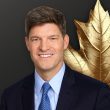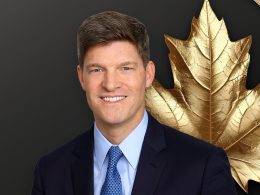by Hubert Marleau, Market Economist, Palos Management
In spite of a combination of decent economic data like the July uptick in the Conference Board’s Leading Indicators and resistance from three regional Fed leaders that the monetary stance should not be tampered with, Jerome Powell said that he is prepared to provide stimulus if a slowdown hits the U.S. economy. He stopped short of signaling the start of an aggressive easing campaign.
He more or less made the case that the Fed will insure against further slowing of business investment, apply risk management on a need be basis and re-set inflation back to a sustainable 2.0%. He used the “Risk and Uncertainties” more than 20 times in his speech arising from the trade spat.
A monthly index of global uncertainty compiled by researchers from the University of Chicago, North Western University and Stanford University was very near a high in July--this index will end higher in August and reach a new high.
While he assured his audience that he was aware of the economic implications of the geopolitical backdrop and would take appropriate measures to sustain the expansion, he was clear that the Fed does not have a set of strategies for dealing with Trump’s trade war.
It means that the monetary officials will draw up ideas on the go to deal with international developments that may rattle confidence.
The global events will likely override domestic consideration for the time being. He stated that “while monetary policy is a powerful tool that works to support consumer spending, business investment and public confidence, it cannot provide a settled rule book for international trade.”
Thus, the Fed cannot become inextricably bound up with trade policy. On a going forward basis, a return to global growth optimism is what is needed.
The best way to bring back some optimism to the world will not be with more tax cuts or more government spending. What is needed is an end to trade brawls because the risk to growth comes from government trade policy rather than from than market forces.
If Trump is serious about giving the economy a boost without interference from Congress and legal challenges, he just has to end the trade war.
The evidence of the harmful effect of currency shifts and tariff changes on manufacturing is obvious. Exports are declining, business investments are falling and supply chains are being disrupted. Corporations with global customers and suppliers are mentioning trade-uncertainty as their leading concern.
Trump could dispel fears by withdrawing the imposition of tariffs on European cars, end duties on steel and aluminum and reassure business that he will not allow a unilateral withdraw from NAFTA.
The WSJ argued in a recent article that if he does not want Elizabeth Warren to sit in the White House, he just has to make small progessive deals with China rather than try to win with a full staredown in one shot.
The approval rating for Trump’s foreign and economic policies has ranged between 32% and 42% since his election—too low to win a second term.
In this respect, there is a silver lining to Trump’s excessive reactions to China’s retaliatory tariffs (which incidentally amount to almost nothing), to Jerome Powell's remarks on risk management, and the “Black Hole Monetary” white paper of Larry Summers – It is zero bound interest rates!
The U.S. is only one recession away from negative rates. My subjective odds for a 25bps rate cut is now 85% in September and 75 % for another one in October.
The lesson that the policymakers on the monetary side have learned from previous lessons is that an ounce of prevention is worth pounds of cure. Surely, Jerome Powell has already started to form a consensus among his voting colleagues for the next rate cut which could come at the Fed’s September 17-18 meeting.
Suffice it to say that would be just fine with Trump, who judging by his reactions to the Chinese imposition of duties on oil, car parts and agricultural products is willing to drive the economy over the cliff if it means rate cuts.
Copyright © Palos Management
.













